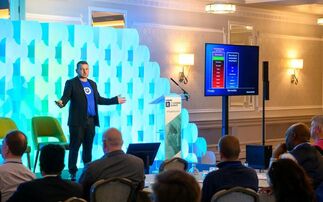Cryptography Research's Paul Kocher says industry should focus more on hardware-based security
The security industry should focus more on embedding security in hardware rather than software. This is according to Paul Kocher, president and chief scientist at security firm Cryptography Rese...
To continue reading this article...
Join Computing
- Unlimited access to real-time news, analysis and opinion from the technology industry
- Receive important and breaking news in our daily newsletter
- Be the first to hear about our events and awards programmes
- Join live member only interviews with IT leaders at the ‘IT Lounge’; your chance to ask your burning tech questions and have them answered
- Access to the Computing Delta hub providing market intelligence and research
- Receive our members-only newsletter with exclusive opinion pieces from senior IT Leaders






















